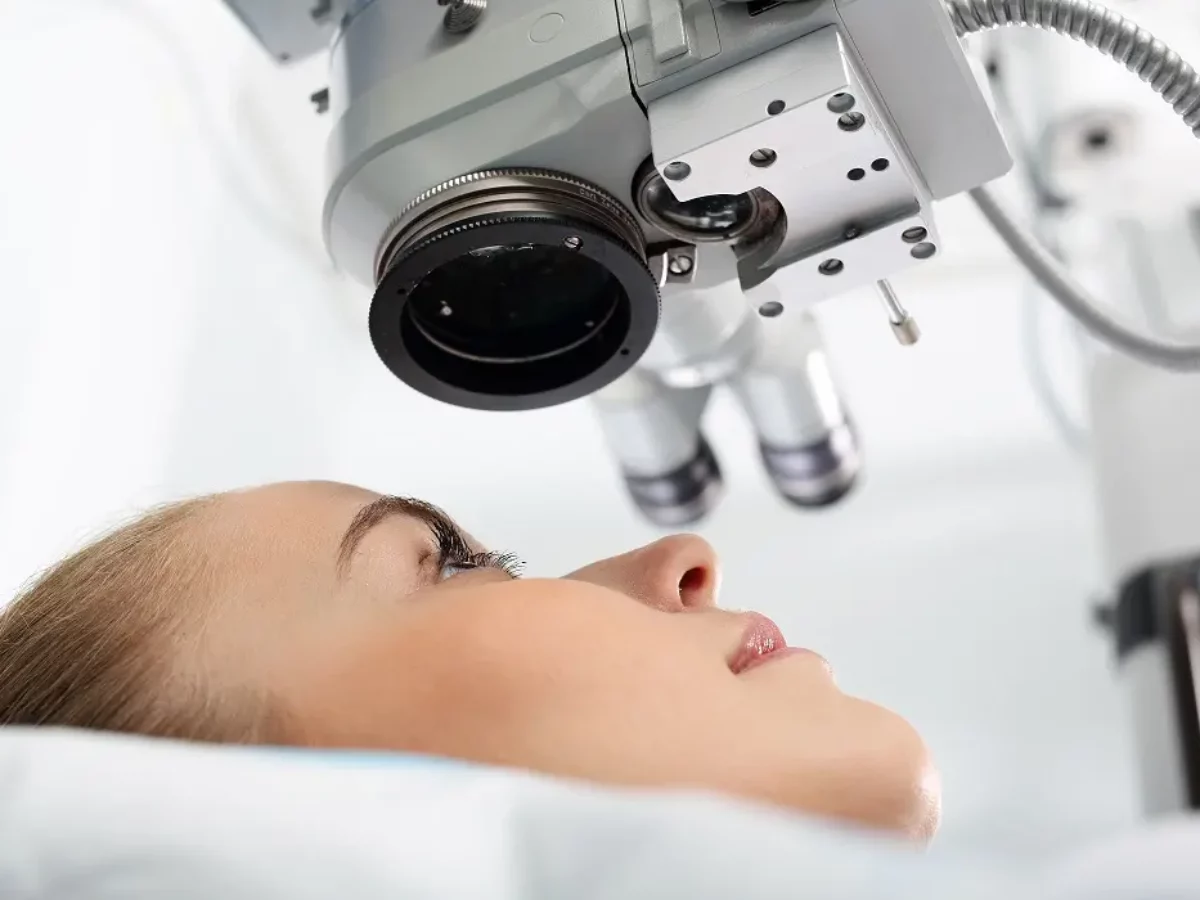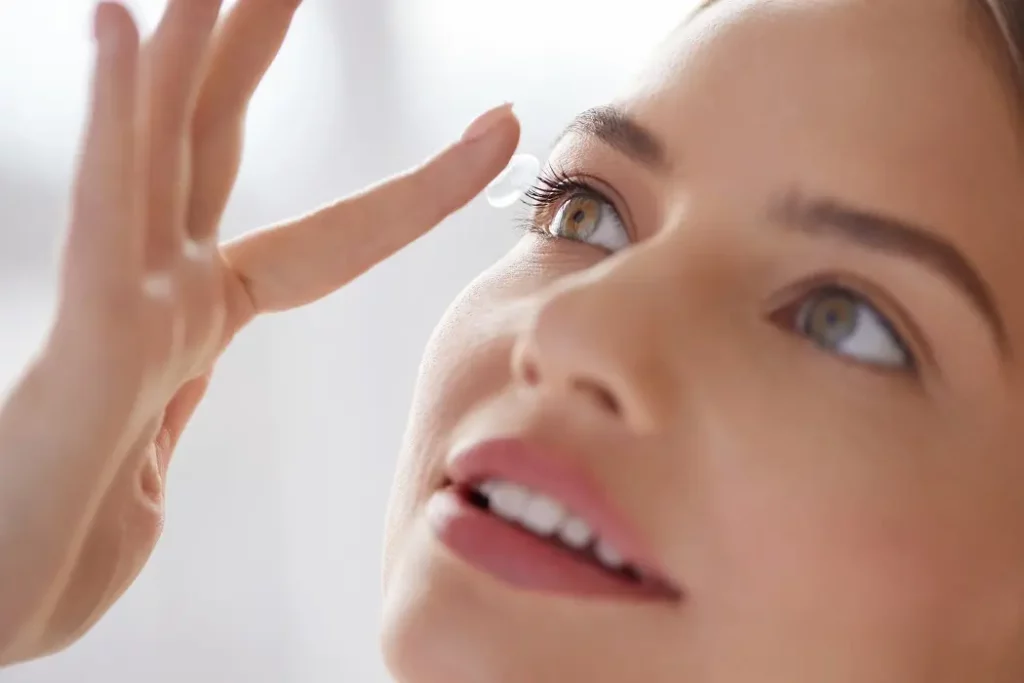All Categories
Featured
Unlocking Opportunities: Comprehensive Low Vision Recovery Alternatives.
Living with low vision can offer unique obstacles, but contemporary rehab methods encourage people to adapt and prosper. From advanced innovation to hands-on training, there are countless options made to improve daily life and foster independence. Here's a detailed check out the varied rehabilitation services available for those with low vision.
The Duty of Low Vision Rehab
Low vision rehabilitation concentrates on helping individuals maximize their remaining vision and create skills to manage their surroundings. With a mix of devices, training, and customized support, recovery programs enhance performance and boost self-confidence in browsing everyday activities.
Secret Low Vision Rehab Options
Personalized Aesthetic Help
High-Powered Magnifiers: These devices can be found in portable, wearable, or electronic styles, enabling customers to check out, create, or sight things up close.
Telescopic Glasses: Ideal for boosting range vision, these glasses assist with tasks such as watching television or reading signs.
![]()
Filter Lenses: Colored lenses lower glare, boost comparison, and supply UV protection, boosting comfort and presence.
Technical Technologies
Digital Magnification Gadgets: Desktop computer and portable tools supply flexible zoom, allowing less complicated access to published materials and digital content.
![]()
Voice-Assisted Modern technology: Screen viewers, voice-enabled mobile phones, and AI-driven applications help users browse the electronic world more effectively.
Wearable Vision Aids: Smart glasses outfitted with cams and acoustic feedback provide real-time assistance with analysis, acknowledging things, and spatial orientation.
Specialist Training Programs
Orientation and Mobility Training: This program instructs people exactly how to move confidently within their homes and communities, frequently integrating canes or overview pets.
Daily Living Abilities: Specialized training gears up people with techniques to execute important tasks such as cooking, clothing, and handling family tasks.
Flexible Visual Techniques: Specialists overview clients on leveraging field of vision or scanning methods to make up for vision loss.
Ecological Modifications
![]()
Simple changes in the house or job can considerably boost access:
Utilizing contrasting shades for far better object differentiation.
Including task lights to boost presence.
Marking devices with responsive signs for simpler operation.
Emotional and Social Assistance
Dealing with vision loss frequently includes emotional modifications. Assistance groups and therapy solutions supply a risk-free space to share experiences and build durability.
Peer mentoring programs attach people with similar difficulties, promoting friendship and shared solutions.
Accessing Rehabilitation Services
Reduced vision recovery solutions are extensively readily available through:
Specialized Clinics: Optometrists and ophthalmologists learnt low vision care supply customized evaluations and remedies.
Nonprofit Organizations: Teams like the American Structure for the Blind and VisionAware provide sources, assistance, and references.
Neighborhood Centers: Regional services might supply inexpensive or cost-free training and access to assistive devices.
Final Thoughts
By discovering the many recovery choices available, those with low vision can locate strategies that function best for their unique requirements and situations. If you or a loved one encounters vision challenges, don't wait to reach out to a reduced vision professional to start the journey toward empowerment and adaptability.
Living with low vision can offer unique obstacles, but contemporary rehab methods encourage people to adapt and prosper. From advanced innovation to hands-on training, there are countless options made to improve daily life and foster independence. Here's a detailed check out the varied rehabilitation services available for those with low vision.
The Duty of Low Vision Rehab
Low vision rehabilitation concentrates on helping individuals maximize their remaining vision and create skills to manage their surroundings. With a mix of devices, training, and customized support, recovery programs enhance performance and boost self-confidence in browsing everyday activities.
Secret Low Vision Rehab Options
Personalized Aesthetic Help
High-Powered Magnifiers: These devices can be found in portable, wearable, or electronic styles, enabling customers to check out, create, or sight things up close.
Telescopic Glasses: Ideal for boosting range vision, these glasses assist with tasks such as watching television or reading signs.

Filter Lenses: Colored lenses lower glare, boost comparison, and supply UV protection, boosting comfort and presence.
Technical Technologies
Digital Magnification Gadgets: Desktop computer and portable tools supply flexible zoom, allowing less complicated access to published materials and digital content.

Voice-Assisted Modern technology: Screen viewers, voice-enabled mobile phones, and AI-driven applications help users browse the electronic world more effectively.
Wearable Vision Aids: Smart glasses outfitted with cams and acoustic feedback provide real-time assistance with analysis, acknowledging things, and spatial orientation.
Specialist Training Programs
Orientation and Mobility Training: This program instructs people exactly how to move confidently within their homes and communities, frequently integrating canes or overview pets.
Daily Living Abilities: Specialized training gears up people with techniques to execute important tasks such as cooking, clothing, and handling family tasks.
Flexible Visual Techniques: Specialists overview clients on leveraging field of vision or scanning methods to make up for vision loss.
Ecological Modifications

Simple changes in the house or job can considerably boost access:
Utilizing contrasting shades for far better object differentiation.
Including task lights to boost presence.
Marking devices with responsive signs for simpler operation.
Emotional and Social Assistance
Dealing with vision loss frequently includes emotional modifications. Assistance groups and therapy solutions supply a risk-free space to share experiences and build durability.
Peer mentoring programs attach people with similar difficulties, promoting friendship and shared solutions.
Accessing Rehabilitation Services
Reduced vision recovery solutions are extensively readily available through:
Specialized Clinics: Optometrists and ophthalmologists learnt low vision care supply customized evaluations and remedies.
Nonprofit Organizations: Teams like the American Structure for the Blind and VisionAware provide sources, assistance, and references.
Neighborhood Centers: Regional services might supply inexpensive or cost-free training and access to assistive devices.
Final Thoughts
By discovering the many recovery choices available, those with low vision can locate strategies that function best for their unique requirements and situations. If you or a loved one encounters vision challenges, don't wait to reach out to a reduced vision professional to start the journey toward empowerment and adaptability.
Latest Posts
Enjoy Summer at The Docks
Published Apr 11, 25
1 min read
Protect Your Vision with Advanced Ocular Assessments at Vision Center South
Published Apr 11, 25
2 min read
Full Circle Strategic Marketing - Take Over Search Rankings with Battle-Tested SEO Tactics
Published Apr 11, 25
2 min read
More
Latest Posts
Enjoy Summer at The Docks
Published Apr 11, 25
1 min read
Protect Your Vision with Advanced Ocular Assessments at Vision Center South
Published Apr 11, 25
2 min read
Full Circle Strategic Marketing - Take Over Search Rankings with Battle-Tested SEO Tactics
Published Apr 11, 25
2 min read